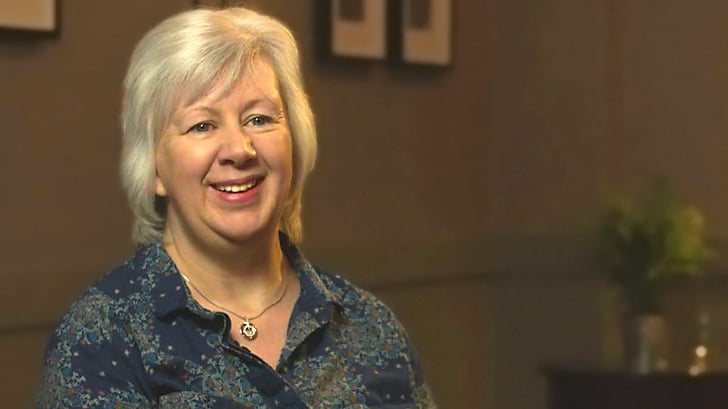Bowel management is not an easy subject to talk about. Many children with bowel dysfunction and their families suffer in silence, often in desperate need for help. One of the nurses who goes above and beyond to support these families is award winning Christeen Smith from Edinburgh. Watch this interview to get to know her more!

Christeen Smith has been nursing for over 30 years and can’t think of a better job. When the former stoma nurse retired 14 years ago, Christeen got the chance to take over her role.
– It’s my ideal job. Every day is different. I’m my own boss and I see the children both in the hospital and in their own homes. Most nurses are hospital based, whilst I am the reverse of that. I get a totally different picture of families when I see them in their own situation.
Support of the families is the highest on Christeen’s agenda, and probably also the part of the job that is most rewarding. Since family life continues around-the-clock, Christeen usually have very generous “access times”. She often makes herself available, even outside office hours.
– I probably shouldn’t do that… But I can easily reassure the parents over the phone if a symptom is fine or not. I could just tell them that I will come over the next day or advise them to come up to the hospital to be seen. Most often this is what they need to hear.
Life revolves around bowel for these families. They are very restricted on where they can go, and what they can do. Many children are on high doses of laxatives.
– They can’t go to school, be out with their friends or participate in sports. Some need to spend the weekend having a bowel clearance; otherwise it would affect their schooling. They always need to be near toilets. It affects the whole family.
The situation can be quite daunting and there are not many people you can discuss your child’s bowel problems with. Continence tends to be a taboo subject. Many families are in great need of support, especially when they are about to start a new therapy.
– I think we expect an awful lot of families. They don’t have any medical experience but we teach them procedures in hospital that nurses sometimes find difficult. And yet we expect parents to learn how to change a stoma, how to do an anal dilatation and how to do an irrigation, just in one or two sessions.
Usually the children have been through a lot of problems and tried a lot of treatments before they reach the irrigation stage. Christeen has known many of the children since they were babies and the discussion about transanal irrigation, as a future option, has been ongoing more or less from the start.
– Many parents are worried and have a negative thought about it. I usually say that it is not as negative as they think. After a while most parents say that it has transformed their lives.
Christeen tells the story about a boy she met recently. He has Spina Bifida and suffered from constipation and diarrhea alternately, and also from tummy cramps, before he started the treatment. He liked swimming but didn’t feel secure in the pool. Eventually he didn’t want to go swimming at all even though he was a true talent.
– When this boy started to irrigate his life changed. His mum told me she couldn’t believe how different life has become for her boy and the whole family. Today he is competing in swimming and he has got his life back.




